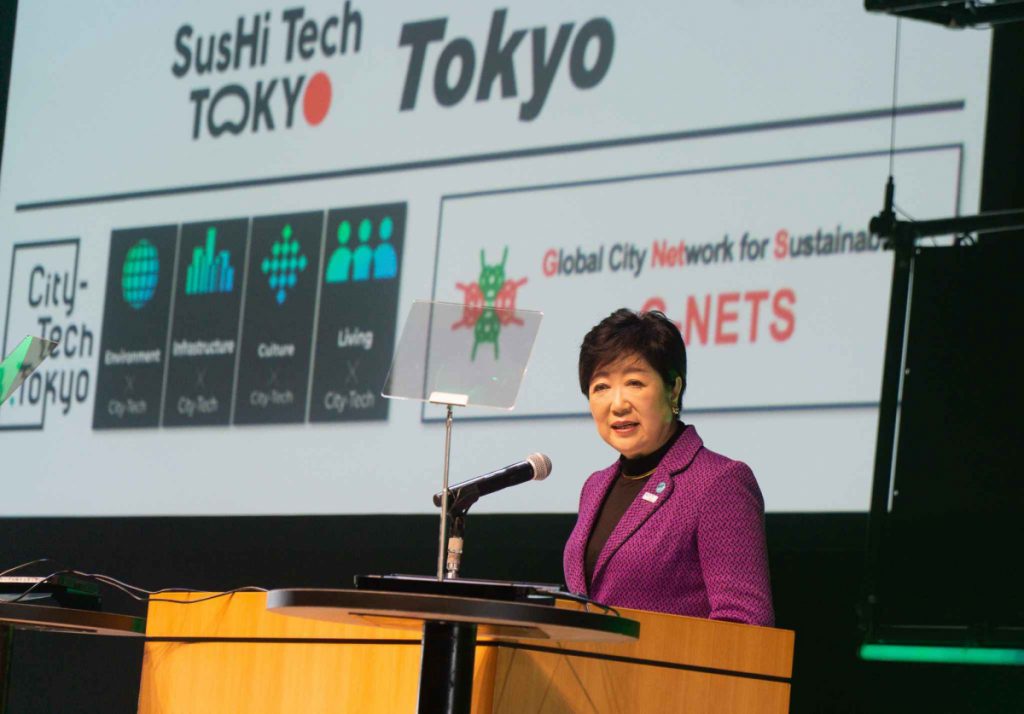Japan's capital hosted City-Tech. Tokyo on February 27-28, a startup-centered event, where many of its actors brought innovative solutions in the field of sustainability.
It's the first event of its kind, bringing together university ventures and startups from Japan and the world, with the aim to create a startup hub in Asia. And ventures aiming to make our world more sustainable were taking center stage.
For example, one of the main appeals of the event was the City Tech Challenge, a pitch competition where startups would compete for a grand prize of ¥10 million JPY ($73,613 USD).
Kyoto Fusioneering Ltd, brought home the top prize, with their vision "to deliver a new energy future for humankind," according to the company website.
Avoiding Water Waste
Many startups present at the event tackled problems related to sustainability.
A good example is Wota, a Japanese venture which has the ambitious aim of universal water provision, which started in 2014.
The company develops products that, through AI, filter water at 98% so that it can be recycled. Its shower box — called WOTA BOX — achieved the seemingly impossible feat of providing 100 showers with only 100 liters of water.
Thanks to the easy setup, this product is well-placed for disaster-affected areas or those with little infrastructure. One of the WOTA BOX's most recent applications was providing shower boxes for earthquake-hit regions in Turkey and Syria.
The Power of Upcycling
Other companies took on the problem of upcycling waste materials.
They include Singaporean venture Alterpacks, which uses organic waste to produce food packaging which is both durable and biodegradable.
The idea was born during the pandemic when CEO and founder Karen Cheah thought she could do her part for the environment. She has created containers that lend themselves well to packed lunches, a common staple in Japan.
Highlighting the importance of initiatives like hers, she pointed out, "Japan is the third country in the world in terms of use of plastic containers."
The packages are also surprisingly sturdy, as the containers are designed to withstand temperatures from -18 C to over 260 C. "You can put it [the container] over an open flame, you can boil water, and then you can put it in the freezer," says Cheah.
The company's innovative approach was recognized with several special prizes under the City Tech Challenge competition, according to the Tokyo Metropolitan Government press release.
Another interesting item was provided by Crust, a company also born in Singapore, which uses bread crusts and vegetable or fruit peel to create new beverages.
The company is poised to enter the Japanese market. "There aren't that many companies that upcycle in Japan, and we see an opportunity in that," said Hiroyuki Hirano, head of Business Development.
Japanese Fermentation and Sustainability
A Japanese company born in Iwate, Japan, Fermenstation, uses fermentation to upcycle food waste that would otherwise be discarded. Using Japanese fermentation products, it processes items like rice and foodstuff into byproducts — such as ethanol — that can then be used in other sectors.
COO Shota Kitabatake explained how the start of the company came from a need in the community in Iwate: there were rice fields that were not being used, and the locals were trying to revive the industry. Since it was difficult to sell the rice, they thought they could try to sell rice-derived products, such as alcohol, thanks to the process of fermentation. And that is how the business was born.
"Fermentation is something that Japan is very strong at, but the topic of food waste and food loss still needs to be addressed in Japan, so we wanted to be the ones to connect these two concepts together," explained Kitabatake.
Fermenstation's COO was optimistic about the business prospects. He says that large cosmetics companies are starting to use these byproducts, so there seems to be a need in the market.
More widely, Kitabatake was optimistic about the prospect of sustainable business in Japan. "We started in 2009, when sustainability was still not a buzzword. I think the culture is really changing," he said.
